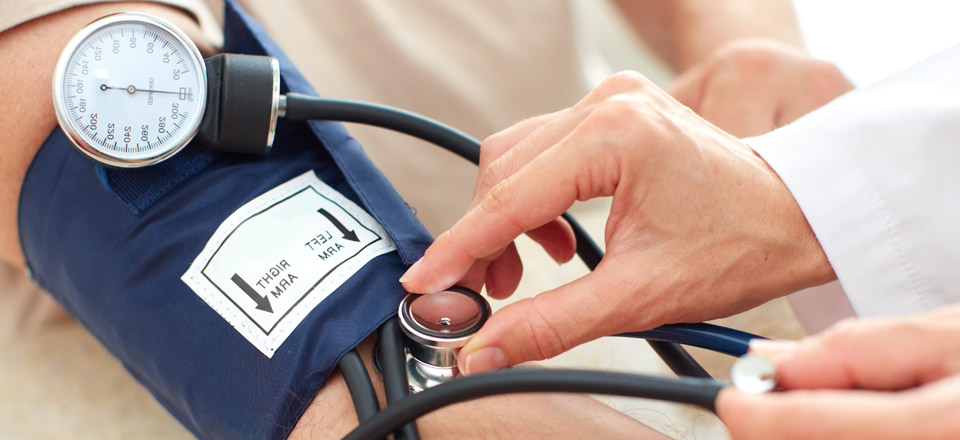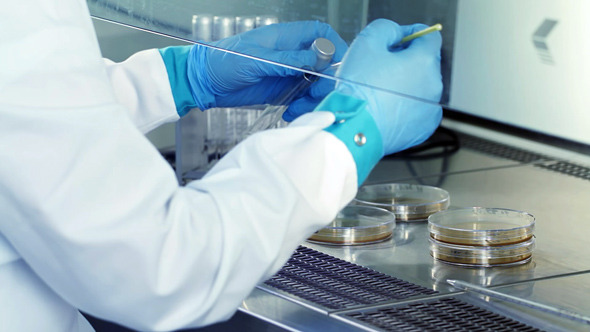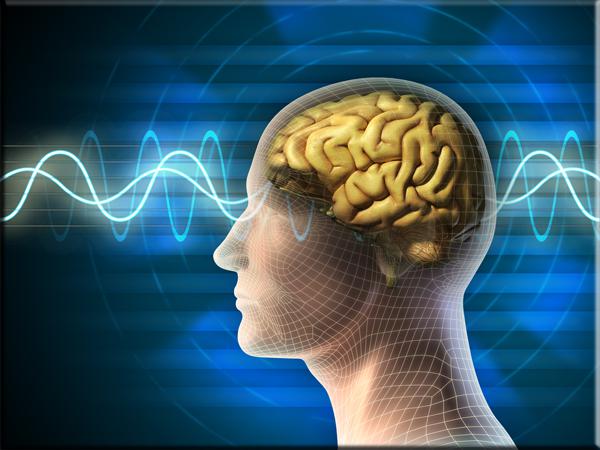Work is an important part of human life. It allows you to realize, develop, and most importantly - make money. Most areas of work require a special education and certain personal qualities from a candidate. But not everyone knows that for many good specialties, in addition to excellent knowledge, you will need to have good health in certain respects.
Contraindications to professions is a list of diseases in the presence of which a person will not be able to study, and then work in the chosen specialty.
Everyone knows that the state of health is important when choosing a profession such as a pilot, policeman, military. And if a person wants to become a programmer, driver or cook, but even here he encounters an obstacle in the form of medical contraindications?
To begin with, in any profession there are requirements for the physical condition of the employee.
Medical checkup
When applying for a job, it often happens that a person does not know about the need to undergo a physical examination, and sometimes learns about this after an oral agreement. Therefore, it is better to immediately clarify at the interview whether there is a need for it and where to get a medical examination. It’s also worth asking if compensation is due.
Further, the future employee is confronted with the question in what order the medical examination is conducted when applying for a job, which doctors to go through. It depends on the area of activity in which you intend to work. In addition, additional specialists are provided for women, such as a gynecologist and a mammologist (after 40 years).
The employer, examining the results of a medical report, primarily focuses on those candidates who do not have medical contraindications to professions and will be able to fully perform their job duties. In addition, such employees are beneficial to him, because they are less sick.
Before proceeding to the passage of doctors, you should get a referral from the place of work. Then contact the clinic for registration. Please note that, most likely, you will have to pay from your own pocket. It is likely that the money will be returned later, but not in every company this is provided.
You will receive a list of doctors who will conduct a physical examination. Most often these are specialists such as:
- therapist;
- neurologist;
- dentist;
- dermatovenerologist;
- surgeon;
- otolaryngologist (ENT);
- oculist.

Laboratory tests are also required:
- electrocardiogram;
- fluorography;
- clinical analysis of urine and blood;
- biochemical blood test (for cholesterol and sugar);
- gynecological smear.
There may be other types of analyzes, again, depending on the scope of work.
Feel free to ask your employer in detail about things that you don’t understand. After all, it is in his interests that you undergo a medical examination qualitatively and in a short time.
If you wish, you can go through a medical examination for a fee and get medical professional advice in a private clinic. This costs a considerable amount, but it saves time and nerves that you spend in the queues of the clinic.

Medical examinations are:
- Mandatory. They pass before entering work.
- Periodic Such a physical examination is carried out once every six months, a year or two. It also depends on the specifics of the institution. Most often once a year (without fail, if the age of the employee has not reached 21 years).
Where to get a medical examination for a teenager who is still in school? In any educational institution, annual examinations of students are provided. When passing the specialists, the child can ask additional questions and get referrals to other doctors if he needs it.
Is a physical examination mandatory?
There is a list approved by law, in which all posts and places of work are required that require the passage of specialists. If your future place of work does not apply to him, you have the right to refuse a physical examination.
Otherwise, strict penalties are applied:
- Suspension from work.
- Termination of an employment contract.
- Disciplinary action (reprimand).
For employers who do not control the passage of a medical examination by employees, sanctions are provided for:
- Administrative fine (from 15 thousand rubles for individuals and from 110 thousand rubles for legal entities).
- Suspension of the institution for up to 90 days.
Specialties with compulsory physical examination
There are many professions for which you simply will not be accepted without a medical examination. These include:
- the field of education, medicine and the food industry (including catering);
- institutions that provide public or household services to citizens (hotels and hotels, tourism workers, hairdressers and beauty salons, night clubs);
- Drivers
- specialists working on a rotational basis;
- workers in contact with hazardous or hazardous substances;
- athletes;
- underground workers;
- Specialists working in the Far North and equivalent regions;
- some other posts (judges, police officers, civil servants, rescuers, departmental security).

Psychophysiology and classification system
In addition to the physical and mental health of people, psychophysiology also plays an important role. This is a field of research related to psychology and neurophysiology.
Simply put, it considers the relationship between the brain and the psyche, taking into account biological factors.
This science allows you to systematize information on specialties depending on various factors (history of creation, nature of work, type of work, from what and why they produce, etc.)
Psychophysiological classification of professions implies several systems. The most rational is the information retrieval mechanism. It includes 5 signs of classification:
- General information (name and branch of labor activity).
- Training (level of specialist training and career prospects).
- Production data (content of work, goals and responsibilities).
- Sanitary labor standards (contraindications).
- Psychophysiological properties (emotional background, personal qualities, sensory and mental processes).
In general, the system allows you to get all the basic data about the profession, as well as learn about several specialties that are similar in their characteristics.
Psychophysiology will help to analyze the work of an employee and its effectiveness.

Career guidance
In working with current students, considerable attention is paid to career guidance, so adolescents already know that there are medical contraindications to professions. This is the right time to take this issue seriously. The sooner a teenager thinks about it, the more options he will have to change his profession if his health indicators are not suitable for the one for which he was planning to study.
So that the choice of a profession does not become stressful for a child, it is necessary to know in advance about the presence of any diseases and already start from this when choosing a profession. And the adults who surround him should help in this: psychologists, teachers, doctors and parents.
Of course, a teenager can try to hide some kind of ailment or try to soften a doctor.The main task in this situation is to think about the psychological and physical state of the child’s health. After all, the disease will still be detected during subsequent medical examinations, and it will be very disappointing to spend time and money in vain for training, which will not be useful in the future.

Contraindications to the choice of professions
In some professions there is such a thing as an absolute medical contraindication. We will name the severe stages of some diseases that are contraindicated for most areas of work:
- tuberculosis;
- cardiopulmonary failure;
- rheumatism (in the active stage);
- diseases of the musculoskeletal system with irreversible changes;
- malignant hypertension, Conn syndrome;
- kidney disease (chronic nephritis, pyelonephritis, polycystic);
- endocrine diseases;
- narcolepsy;
- blood diseases (leukemia, anaplastic anemia);
- chronic diseases of the nervous system (with impaired intelligence);
- mental illness (manic-depressive psychosis, schizophrenia, psychopathy, oligophrenia).
The Russian Ministry of Health has established a list of contraindications in which it is necessary to undergo preliminary (when applying for a job) and periodic medical examinations.
Medical contraindications for admission to work can also be associated with danger or harm:
- production factors (chemical or biological substances; in this case, employees require additional physical examination, about once every 2 years);
- production work (work at heights or with electricity; oil and gas industry, activities in the Far North and equivalent areas).
List of unwanted diseases
In addition to strict medical contraindications to professions, there are simply undesirable ones that contribute to the development of the disease. The following are diseases and specialties that you should not work in order not to harm your own health.
The most common diseases:
1. Vision (myopia). If vision is very poor, it is better to choose specialties that do not require a systematic eye load. It is also better to avoid work that requires a lot of physical endurance. Note that there are many professions for which it is necessary to distinguish all colors (radio engineering, construction, clothing and footwear).
2. Respiratory tract (bronchial asthma, chronic bronchitis).
- bad weather conditions (damp, drafts);
- toxic substances and dust (including construction);
- allergenic products and substances;
- great physical and emotional stress.
These diseases entail many medical contraindications to professions: dentistry, chemical industry, construction, pharmaceuticals.
3. Scoliosis. Excessive physical activity associated with weight lifting entails a worsening of the disease.
4. The gastrointestinal tract. Contraindications of these diseases are associated primarily with professions in which it is impossible to maintain a proper diet. For example, specialties with frequent business trips and excessive noise.
5. The cardiovascular system. This applies to stressful specialties, which involve a large mental, physical and moral burden.

At the same time, remember that in the same sphere of work there may be various medical contraindications to professions. It depends on the educational institution in which a person wants to study, as well as on a particular specialty. Therefore, when choosing a faculty, be sure to ask what health indications are required for admission and further work.
Separate specialties
Separately, it is worth analyzing several areas of work in which medical contraindications are especially important.
1. Professions related to metal processing:
- Technological engineer, constructor (implies the presence of extensive specialized knowledge).
- Metallurgist. This name includes several specialties. All of them are associated with ore beneficiation and metal smelting (welder, rolling agent, steelmaker, turner, milling machine operator, locksmith, thermist).
- Jeweler (specialist in the manufacture and repair of products from precious metals and stones).
These activities require a very good vision (you have to work with small details) and, in general, an excellent state of health, because this activity is most often associated with great physical exertion.
These are specialties that are associated with physical labor. And now we will talk about areas where intellectual work predominates.
2. Professions related to children.
Contraindications of this category apply to any activity that is related to the upbringing and education of children:
- teachers of educational institutions;
- educators of preschool educational institutions;
- teachers of additional education and many others.
For work in the pedagogical sphere, the absence of infectious diseases, good eyesight and hearing, and the absence of nervous and mental deviations are necessary. For teachers associated with great activity, you need good physical preparation (physical education teacher, swimming instructor, choreographer and music director).
Job change
Profession and health are the main indicators of a person’s successful life, because a specialty helps him to realize himself, and health supports this. But what if, during the next illness, a disease was discovered in which a person cannot continue to work in his post?
Keep in mind that it’s unlikely that you can hide this from the employer, because he has access to the results of a medical examination, in which your illness will certainly be detected.
Each situation is individual, and the leader himself has the right to decide (based on the doctor’s recommendations) whether the employee’s state of health allows him to transfer to feasible work or if a dismissal is coming.
What factors can prevent an employee from continuing his activities?
- The specifics of the work contributes to the development of the disease.
- Due to physical ailment, a person is simply not able to perform any physical or intellectual work.
If the employer can exclude this factor, then the employee is not forbidden to stay in his position.
But this, unfortunately, is not always possible. The transfer to another job for health reasons is carried out on the basis of Article 73 of the Labor Code of the Russian Federation. She points out that if a person cannot continue to work in his position, the employer is obliged to provide the employee with a place that matches his capabilities (if any). For this, it is necessary to request the written consent of the employee and be sure to attach a medical report.
If the employee refuses to receive a new position or the management is not able to provide it, the employment contract is terminated on the basis of clause 8, part 1, article 77 of the Labor Code of the Russian Federation. In this case, a person may receive severance pay in the amount of the average monthly income. If the employee knew about the disease, but hid it, then he is not supposed to benefit.

Medical contraindications in pregnant women
A separate category of workers who need to reduce their workload is pregnant women.
Article 254 of the Labor Code of the Russian Federation says that upon presentation of a certificate of pregnancy, women are expected to reduce their workload (if this is really necessary). If it is impossible to comply with this rule, the employee is temporarily transferred to another position while maintaining the average earnings of the old position. It is worth noting that after the decree, the woman returns to her previous job.
The same applies to women with children whose age has not reached one and a half years.
Profession and health are the key to a successful life
From the foregoing, we can conclude that there are many medical contraindications, they are individual for each area of work.
Professional fitness and health are inextricably linked and are of key importance when choosing a profession and in human life as a whole. The main thing is to understand that these rules are established in order to protect public health, prevent the onset and spread of diseases.
Analyze the information that this article helped you find out and take the right step towards your future.
